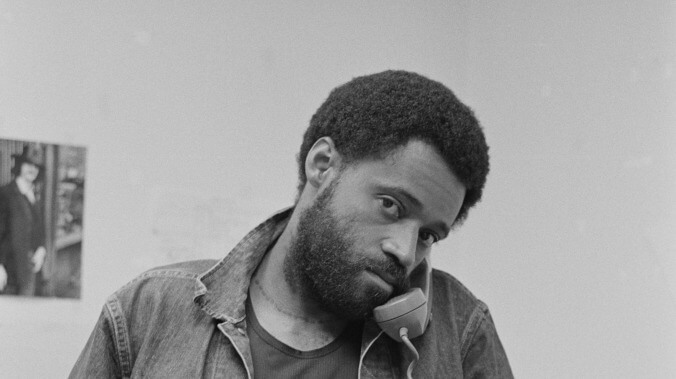R.I.P. Melvin Van Peebles, writer-director-star of Sweet Sweetback's Baadasssss Song
Van Peebles was a Renaissance man, working as an actor, playwright, director, musician, and more

Melvin Van Peebles has died. An actor, director, musician, artist, author, and more, Peebles is best known for his groundbreaking film Sweet Sweetback’s Baadasssss Song, a self-funded effort that essentially birthed the wave of Black-led, Black-focused genre films of the 1970s. Something of a Renaissance man, Van Peebles’ work as a filmmaker sits aside his long career in the French press, his prolific music career, his talents as a playwright, and more. Per THR, Van Peebles died yesterday at his home in Manhattan. He was 89.
Originally born in Chicago, Van Peebles first dipped into movie-making in San Francisco in the late 1950s, creating short films that eventually saw festival play in France. (Where he lived for several years, charting a course as an author, humor columnist, and more—including a brief stint running a short-lived French version of MAD Magazine.) He returned to the States in the late ‘60s, briefly working with studios to direct the Herman Raucher script Watermelon Man, about a white man who wakes up one morning to discover he’s now Black. In making the film, Van Peebles ran into enough conflict with both the studio, and his screenwriter, that he determined that his next film would be an entirely self-run affair.
The resulting movie, Sweet Sweetback’s Baadasssss Song, was a landmark achievement: At once a mass-market triumph for independent film-making, and a highly personal meditation on Black power and sexuality, Sweetback was funded, directed, written, and starred in by Van Peebles himself. (With a little help from Bill Cosby, who loaned Van Peebles $50,000 to get it made.) The film tells the story of a young orphan who ends up on the run from the police, embracing the Black revolutionary movement in the process. (Huey P. Newton was apparently a huge fan.) The film also sent a simpler message to Hollywood: There was real money in courting Black audiences, a realization that helped kick off the blaxploitation genre to come.
Talking to us in 2004—timed to the release of his son Mario’s biopic about his father, Badasssss! —Van Peebles discussed his motivations for going independent—and some of the unconventional tricks he used to keep his movie under the radar:
That was, of course, not the Hollywood way of doing things. I wanted to do my vision. Before I made Sweetback, I had a three-picture deal with Columbia and enough juice, if I was real clever with it, to proclaim that I wanted to do an independent film. I just said I wanted to make a film with a girl I knew, so the unions would leave me alone. That’s how they let me do the movie—you just couldn’t do a non-union movie in Hollywood unless it was a porno film. They didn’t bother with that, so I told the guys that I was doing a porno film. Of course, it went on too long for the shooting schedule, because it was a serious film by that time. But at that point, I was out in the desert where no one could find me. I was below their radar. They didn’t know exactly where I was in the desert.
Sweet Sweetback’s was a massive success, becoming, at the time, the top-grossing independent film to date. A born self-promoter (he marketed the film with the tagline “rated X by an all-white jury”), Van Peebles did his best to capitalize on this success, continuing to act and direct, including a 1972 adaptation of his Broadway play, Don’t Play Us Cheap. He also began working on a more regular basis with his son Mario (who made his acting debut in Song), eventually directing him in his 1989 feature Identity Crisis. He also continued to write, act in TV and film, and pursue a musical career, releasing a dozen albums, soundtracks, and compilations across a multi-decade career.
Melvin Van Peebles did a little bit of everything, and a lot of being Melvin Van Peebles. He spent his life trying to get the ideas in his head into the minds of others, redefining Hollywood’s relationships with race, money, and its audience in the process. He was often a controversial figure, sometimes for his political views and willingness to speak them loudly, and at other times for his attitudes toward women, and even his own son—you can hear him address questions about filming Sweet Sweetback’s infamous loss-of-virginity scene, filmed when Mario was younger than 14, in this interview with NPR from 2008. (“I’m not running a democracy here. I’m running a fascist state…I had the chutzpah to think, OK, son, one day this may be able to open doors.”) His career covered nearly every major creative pursuit humanity’s got, and managed to make an indelible impression on most of them. His death was confirmed earlier today in a press release by the Criterion Collection and Janus Films.